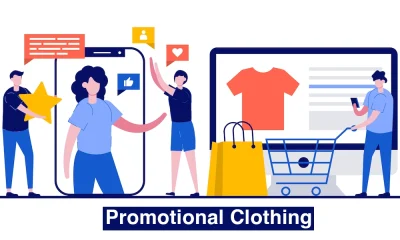Marketing
What are MLM Marketing Networks? – Everything You Should Know About Them
Test your knowledge…Do you know what Robert Kiyosaki, Steven Covey, Donald Trump, and Tom Peters have in common?
That in addition to being millionaire authors of best sellers, they are promoters for entrepreneurs in marketing networks.
And what do Citigroup, L’Oreal, Mars, Remington, Jockey, and Unilever have in common? All are conglomerates that have interests in marketing networks.
What about Warren Buffet, perhaps the most notable investor in Wall Street, and Richard Branson, owner of Virgin Airlines? Three things in common: they’re multimillionaires, they’re efficient, and they both own network marketing companies.
Tom Peters, the author of the business classic In Search of Excellence, described network marketing as “the first truly revolutionary change in commerce since the advent of ‘modern’ marketing at Procter and Gamble and Harvard Business School more than fifty years ago.
Network Marketing – The Best Kept Secret
Fortune magazine described it as “An investor’s dream…the best-kept secret in the business world…an industry with steady annual growth, liquid cash flows, high returns on invested capital, and prospects for long-term global expansion.
Don Failla, a network marketing guru, argues that 100% of people don’t know how marketing networks work and 90% of those in networks don’t know them either.
Objective Is To Build A Network
The most important thing about marketing networks is not product sales or earning income. When you sell at the end of the day, sales and revenues stop. The objective of networks is not really to sell a product but to build a network. Therefore you want an army of people who represent the same product and share it with others, i.e. their followers.
MLM
Marketing networks, also known as MLM, have existed for a long time, and they have been criticized many times by 100% (people) who do not know the business. One of the most common mistakes is to confuse them with illegal pyramid schemes and also the well-known Ponzi. Remember Bernie Madoff? With many illegal schemes, there is no physical product, only money passing from hand to hand. These are pyramids that are held for a while with the support of investors who hope to make money quickly and in the end, the last ones to arrive, lose their investment. The Ponzi scheme is punishable by law in many countries.
The body that regulates the Marketing Networks in the United States is the Securities & Exchange Commission, known by the acronym SEC body that regulates one of the largest industries such as insurance companies.
Looking objectively at business reveals that almost all organizations are a type of pyramid or Ponzi. Governments, the Vatican, corporations, foundations, associations, and trusts are organized as pyramids with different functions between different levels. Therefore not all pyramid models are wrong, and network marketing is in this niche, and today you can apply the technique in most of the products. Here is an interesting jewellery-based MLM review that takes delves into this topic of what’s real and what may be seen as a scam.
Starting A Business
There are many articles on this blog about various startup business models. The most common approach to getting a business operational is the business exists with the owner’s initial investment and with the money earned from sales. The business attracts custom using success stories; therefore, it’s organic growth, which is usually slow on the uptake, and many startups fail to survive the first five years.
Start-up businesses that have investors “angels” have investment to grow the business faster and reach optimum sales and attract offers to buy the company. These angels invest with conditions so that the entrepreneur or startup owner will pay the investors when the company eventually sells. For these angels, the transaction is similar to investing in the stock market with variable risks.
Generally, these two models are beyond the reach of ordinary people because, in addition to the money needed to start a business, there is a lack of education in this subject and necessary skills such as goal setting, agenda planning and time management.
On the other hand, there are many professionals with successful careers who lack the knowledge to build a business.
MLM Business Knowledge Base
It is here where marketing networks are exceptional, as they open the doors to all types of people regardless of education, business experience, ethnicity, nationality or age, it is an opportunity to achieve the financial freedom available to all.
Dr Charles W. King, a Harvard graduate in business administration, who is a professor of marketing at the University of Illinois, Chicago (UIC), teaches the first graduate-level courses in Network Marketing. He is also the author of the book The New Professionals, “the emergence of network marketing as the new profession of relevance”.
Dr King has compiled an assortment of facts, which demonstrate beyond any doubt that in the 21st century MLM will be an essential vehicle for those seeking to self-employ and own a business, and to be financially independent.
But building a business according to Kiyosaki explains in his book The Business of the 21st Century is not easy, because many people do not have the necessary skills and there is no choice but to develop them. These are acquired in the real world provided by marketing networks, such as developing a successful attitude, managing time, setting goals, managing money, and overcoming the fear of rejection, among others.
One thing indeed says this author, you can design the plan you want, study as much as you like, and learn, but the only people who succeed in marketing networks are those who act: today, tomorrow and every day.
At the end of the book in chapter 21, he tells us “network marketing systems are established with the goal that anyone can enjoy wealth. It is open to anyone who has energy, determination and perseverance.” And he adds, “It is time for people all over the world to have equal opportunities to enjoy a rich and abundant life, instead of spending their lives working hard to enrich those who already have too much. It’s time for you to have that opportunity. Welcome to the 21st century.






